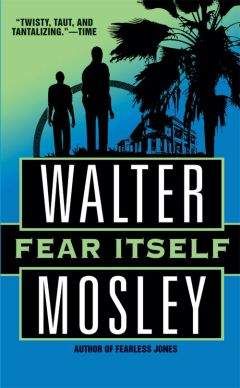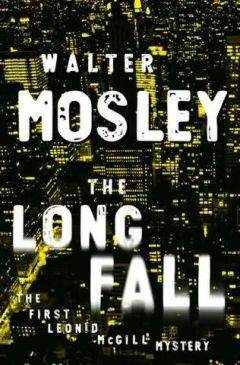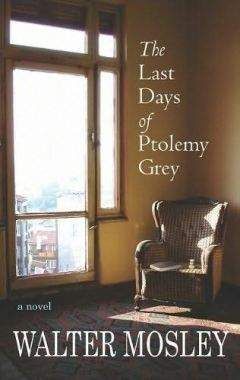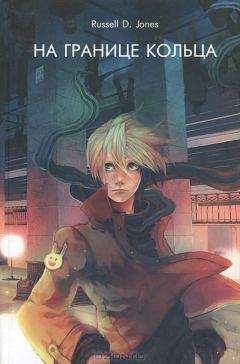Walter Mosley - Fearless Jones
“I mean, why don’t you guys just go to school and buy the businesses and take over your own communities like the Catholics and the Jews?” he’d ask.
He didn’t believe that racism existed except in the southern fraternities. He was a nice guy, but just like the libraries of the North and South, he had very little information about me.
I BEAT SAL seven games straight. It took until just after nine. He stayed to play out the last game when the breakfast man came in. He wasn’t perturbed at losing to a Negro, and so I felt friendly toward him. Sometimes it’s just a little something that makes a man feel good.
I was exhausted, but I never liked to sleep in the daytime. And even if I’d wanted to take a nap, the only options for a bed I had were the backseat of Layla’s car or the upstairs bedroom at Fanny Tannenbaum’s house. Both of those choices had serious disadvantages. If the police found me curled up in the backseat of a car I didn’t own, they could take me to jail for vagrancy or worse. Fanny’s was no safer; Leon Douglas or at least one of his friends had already been there once.
I went over to a small shoeshine-and-magazine stand on Florence. I hung around there a couple of hours reading Jet magazine and shooting the breeze with a few other men like me, men who were between here and there. For a couple of hours I loitered, joking with those young men. I was free of bookstores and killers and ladies so beautiful that they could make you bleed. It was another world, where there were good laughs and no immediate danger, where nothing was different from yesterday and tomorrow promised the same.
15
WHEN I PULLED UP in front of the Greenspan house it was almost eleven o’clock. My intention was to take Fanny back home and spend the rest of the afternoon in bed. I was so tired that I wasn’t even afraid of running into Leon Douglas.
Gella came to the door all awkward and timid, ready to run.
“Mr. Minton?” she said.
“I came by for Fanny,” I told the girl. She wore a medium gray dress cut from coarse material with dark gray buttons up the middle. The sagging hem came down to her shins. It was a dowdy dress without style or promise. I couldn’t understand who would make such an ugly piece of clothing, who would sell it, much less walk into some store and decide that this was the rag they wanted to hang on their shoulders.
“She went home early this morning,” Gella said, half grinning, half looking away.
“She walk?”
“Morris drove her when he went to work.” She couldn’t help but smile and puff up a little when saying her lard-bottomed husband’s name. “I’m going over there now myself. We’re going to visit Uncle Sol.”
“I’ll follow you,” I said. “Maybe Fearless is over there too.”
“He wasn’t when I called.”
“When was that?”
“About seven-fifteen. I called to make sure that everything was okay.”
Fanny’s husband was just out of prison and in the hospital with knife wounds inflicted by a criminal who was still on the loose — and her niece calls to ask is everything okay. I could see why that old woman turned to Fearless and me for help.
GELLA PARKED in the driveway, and I pulled up to the curb. By the time I got to the front door, she’d had enough time to ring the bell and knock.
“Nice day,” I said while we waited for Fanny to answer.
“What? Oh yes. Yes it is nice.” She pressed the doorbell again.
I could hear the three short notes, then the long tone — then an even longer silence. Gella looked at me, and I tried to look unconcerned.
“She probably in the bathtub or something,” I said.
“Aunt Hedva never bathes in the daytime,” Gella pronounced with all the weight of a hanging judge.
I took out the key Fanny had given me and used it in the lock. When I pushed the door open the girl ran in.
“Hedva! Fanny!” She ran up the stairs in great galloping bounds.
I wandered into the den. For some reason I expected her to be there.
Her foot, half in a blue canvas shoe, was visible from around the cushioned chair.
“She’s here,” I said loudly enough for Gella to hear.
I didn’t move. Gella’s heavy feet hurried quickly to the stairs and down. When she got to my side she froze.
The wail from Fanny’s niece was enough to break anybody’s heart. She threw the chair aside and fell in a heap next to the corpse. There was no question about Fanny being dead. Her small face was a dark blue, and her tongue protruded. She looked like some demented soul from an old Bosch painting.
I moved backward and lowered myself toward the chair. But the chair wasn’t where I remembered it, so I fell to the floor. It didn’t bother me to sit there, flat on my ass.
As I said before, I’ve been around hard times, but the death of that tiny woman who had taken me in without the slightest hesitation hit me hard. It was like I was groggy or something. I crawled over to Gella and put my hands on her shoulders. She rose and we held each other, her for a shoulder to cry on and me so I didn’t fall again.
“What can we do?” she wailed.
“Cops,” I said. “Call ’em.”
She went to use the phone in the kitchen while I remained, silent witness to an old woman’s death. From various windows sunlight poured into the rooms. Blobs of light and hard-lined shadows were everywhere. Birds were singing. Cars going up and down the street made the sounds of rushing wind. There was a mambo band playing on a radio somewhere down the block. I wouldn’t have heard any of it if it weren’t for the silence imposed by death.
Gella came back into the room. When she saw Fanny she fell to her knees again.
“There’s nothing we can do until they get here,” I told her. “Why?” she asked me.
I was looking at her, trying to think if there was an answer in the world to fit that question. My mouth opened and I was about to say something, but I had no idea what.
Just then the phone rang. I went into the kitchen as much to get away from the body as to answer the phone.
“Yeah?”
“Mr. Lockwood?”
“Who?”
“Tyrell Lockwood?”
“Who is this?”
“William Grove.”
“I thought you was on your way to Tulsa.” Though my mind was still numb from the grisly death, my tongue was on automatic.
“I had a change of plans,” the reverend said.
“I bet you did.”
“I want to get together and talk to you about our friend.”
“Elana Love?”
“That’s right.”
“You know the Charles Diner?”
“On Eighty-ninth?”
“That’s the place. Meet ya there at nine tonight.”
“I’m in a little bit of a hurry, Tyrell,” Grove said.
“I’m jammed up right now myself, brother,” I said. “It’s nine or nuthin’.” Looking around I saw pieces of glass on the floor near the back door. The little window had been broken in.
“Maybe I could come to your place,” he suggested.
“Not a chance,” I said, thinking that he might never know the favor I was doing him.
There was silence and then, “Nine.”
Grove hung up, but I didn’t. I just stood there with the phone in my hand. I couldn’t believe all the trouble that had followed that woman into my bookstore.
“Was that the police?” Gella asked me. She was so pale that it was frightening to look at her.
“No, Fearless,” I lied as a reflex.
Gella sank into a chair in the dinette.
“When did she come back?” I asked.
“I told you, this morning. Morris brought her.”
“What time was that?”
“Morris was on the way to work at the bank. It was about seven.”
“Did he come in?” I asked.
“No. I called five minutes later. Hedva said that Morris was gone and that she was going to make kugel for you. She sounded upset.”
“About what?”
“I don’t know. I didn’t ask because I knew I was going to see her for lunch…” She sat there on the verge of tears.
“So that was seven-fifteen?”
“Maybe. About then. What does it matter what time it was?”
The doorbell rang, and I realized that I was about to be arrested for murder. I was so shocked by the death that I had forgotten to run. A dead white woman, and there I was, a black man already suspected in an attack on her husband. I should have run out the back door at that moment, but I didn’t. I didn’t have the strength in my legs.
Gella went to the door. I trailed in behind her. Seven uniformed cops came in and spread out through the lower floor.
“Who are you?” the lead cop, a sergeant, asked me.
“Paris Minton,” I said.
“What are you doing here?”
I tried to think of a reason but failed.
“He was my aunt’s boarder,” Gella said, neatly explaining what for me was inexplicable.
“Where were you when this happened?”
“I wasn’t here last night,” I said. “This morning I was playing chess with a friend over on Slauson, at John-John’s.”
“The chili burger place?” a corporal asked.
“Yeah,” I said. “I was playing chess with the night guy. After that I went over to the shoeshine stand on Florence near Central. I got here about eleven.”
“Gino, right?” the corporal asked.
“Say what?”
“The night guy at John-John’s.”
“Salvatore,” I said.
“You found her?” the sergeant asked.
I told him the events as they occurred. I guess I was pretty broken up. Not blubbering or even crying but still deeply hurt and sad.
They questioned me, but there was no edge or threat involved. They got my name and looked at my license. They probably called into the station to make sure that there weren’t any warrants out on me. I wondered why Bernard Latham wasn’t with them, but I didn’t ask.
“Why are you living here?” the sergeant asked me. He didn’t need to add a black man with two old Jews.
“My place had a fire.”
“And they just happened to have a room?”
“Fearless, my friend, did Fanny a favor, and so she did us one in return. Anyway, she was scared after her husband was attacked, and she wanted us around to protect her.”
“Her husband was attacked?” The sergeant had four dark brown moles on his face. They made him ugly. “He dead too?”
I gave him a brief version of Sol’s attack, leaving out Elana Love and adding the lie that Fearless and I were gardeners.
“For protection, huh?” the sergeant sneered. “You did a helluva job, didn’t you?”
The questions switched over to Gella after that. She told them that Fanny had stayed at her house the night before, that her husband brought her over early.
“Why was she at your house?” a policeman in a suit asked. “Why didn’t she stay at home?”
Gella said that it was because of the stabbing.
“Then why leave her here when there was no one else around?” the detective asked reasonably.
“She wanted to come,” Gella said weakly. “She would have walked if Morris didn’t take her.”
They asked her about the night before and the early-morning ride to Fanny’s house. They were asking the questions again and again in different ways. That’s the way the cops work; they try and trip you up, make you say something and then say it wrong from another viewpoint.
But because of the shock Gella answered every question mechanically and exactly the same. Her husband, Morris, took Fanny to her house sometime around seven. At seven-fifteen or thereabouts Gella called to see that Fanny was safe. Morris was already gone off to work, and Fanny was making noodle pudding for me and Fearless.
“Where is this Fearless?” the sergeant asked me.
“He spent the night with his girlfriend,” I said. “Dorthea.”
“Where can I find her?” he asked me.
“I don’t know, officer,” I said. “She’s his girlfriend and all, but I don’t know her.”
It was a lie but not that bad. I didn’t want the cops coming down on Fearless before I got to talk to him. That is, if I could keep out of jail myself.
The ambulance arrived soon after that. The attendants came running in, but they slowed down after they saw the body. No mouth-to-mouth or injection was going to save this patient’s life.
A police doctor came and checked out the corpse. After he did that the cops all stood around me. They wanted to see my hands. The doctor looked at my fingers and then measured the length of my hand.
Finally he turned to the sergeant and said, “I don’t think so, no.” The police moved around the house looking for clues or something. They checked the doors and windows for signs of break-in.
They found the broken glass and fussed around but never took fingerprints that I saw.
“Are you staying here?” the sergeant asked me.
“I guess. Nowhere else to go,” I said.
“Lay off anything around the back door,” he said. “Crime scene.”
They asked me more questions without aggression or anger. They seemed more interested in Gella. They kept asking why Fanny left so early. They wondered why she was so frightened when Fanny didn’t answer on the first ring of the doorbell.
She had good reason to be nervous. Those cops had just as much reason to be suspicious. But I knew that Gella would never have harmed Fanny. I saw her fall apart; nobody could fake that. And I could tell by the way they talked to each other that there was a deep love between those women.
Gella went with the ambulance, and the police finished their searches.
16
I PACED the somber house, taking inventory of the tokens of the Tannenbaums’ life. On their bedroom dresser were more than a dozen photographs in little stand-up frames. Old black-and-whites, and even older sepia-and-whites showing stern-faced, soft-skinned people in dark clothes. Even the children put on frowns for the camera. I didn’t know which one was Sol Tannenbaum, but I recognized Fanny sitting in a high-backed chair, holding a bouquet of lilies. Her face was so sour in that picture that I had to laugh. I knew her well enough that I could see past the pose into the woman who was now dead.
Her rings and bracelets were in a jewelry box. Perfume was a single bottle. One scent was enough at her age. On matching night tables on either side of the bed there were pictures of Gella. Fanny’s photo was a more sedate one of the girl becoming a woman with someone else’s baby in her arms. Sol had one of her in a flaring summer dress, smiling and impatient. I imagined the plain girl was feeling beautiful that night, and she wanted to run away to dance.




